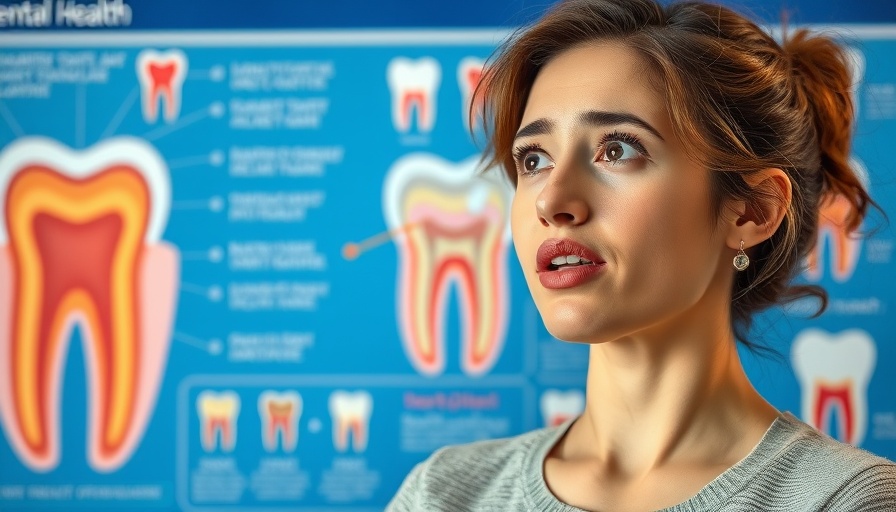
Understanding 'Soft Teeth': Myth vs. Reality
In the realm of dental health, many people casually mention their "soft teeth," attributing frequent cavities or tooth sensitivity to this supposed softness. The term might roll off the tongue easily, but the reality is far from it. As dental hygienist Whitney outlines, the concept of soft teeth leads to misunderstandings about dental health, making it essential to clarify what we mean when we discuss our teeth.
In 'Everyone Thinks They Have This…', the discussion dives into the clarity around dental health myths, exploring key insights that sparked deeper analysis on our end.
Historical Context: The Evolution of Dental Terminology
The use of phrases like 'soft teeth' isn't new. Historically, dental issues have been shrouded in a mixture of scientific knowledge and folklore. The term often stems from frustration with recurring cavities rather than a scientific diagnosis. This linguistic evolution illustrates how everyday language can miscommunicate complex health conditions, indicating a need for better dental education and awareness.
Are Your Teeth Really 'Soft'? Understanding Enamel
Teeth are primarily made of a hard substance called enamel, and as Whitney emphasizes, there’s no true variety of soft enamel. What many are truly experiencing is weakened enamel, which can make their teeth more prone to decay and sensitivity. This confusion can result in misplaced blame on genetics or a familial tendency toward 'soft teeth' rather than addressing underlying health factors such as diet or oral hygiene habits.
Risk Factors: What Really Causes Dental Decay?
The American Dental Association outlines key risk factors for cavities, which does not include the idea of 'soft teeth.' Instead, factors such as sugary foods, a history of decay, or health conditions like dry mouth are more pertinent. By understanding these real risk factors, individuals can better manage their dental health and take effective steps toward cavity prevention.
Proactive Steps for Maintaining a Healthy Smile
Maintaining strong enamel is vital for your dental wellness journey. Regular visits to a dentist or dental hygienist are crucial, as they can help identify any issues early on. Whitney also advocates for good daily habits such as proper brushing and flossing techniques as essential tools in avoiding enamel erosion. You'd be surprised how many people are unaware of the right methods to take care of their teeth!
Common Misconceptions: Debunking the 'Soft Teeth' Myth
One of the most common misconceptions about dental health is the belief that sensitive teeth must mean they are soft or weak. In fact, tooth sensitivity often stems from enamel erosion caused by acidity from foods, grinding teeth, and other factors rather than the inherent softness of teeth. Educating oneself and others about these misconceptions can foster more accurate conversations around dental issues.
Taking Action: Empowering Your Dental Health
For those who often find themselves saying they have 'soft teeth,’ it’s crucial to recognize that while there may be valid reasons for dental sensitivity or cavities, calling them 'soft' is misleading. Instead, understand the specific conditions affecting your dental health with the help of your dental team. Consulting professionals for a personalized plan can empower you to make choices that keep your teeth strong and healthy.
Curious about the right oral hygiene routine? Whitney offers a free oral care guide, which you can access through the link provided. This resource is invaluable in arming yourself with the knowledge necessary for effective dental care, ensuring your journey to a healthy smile is informed and proactive.
 Add Row
Add Row  Add
Add 




Write A Comment